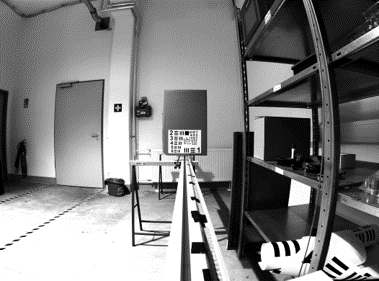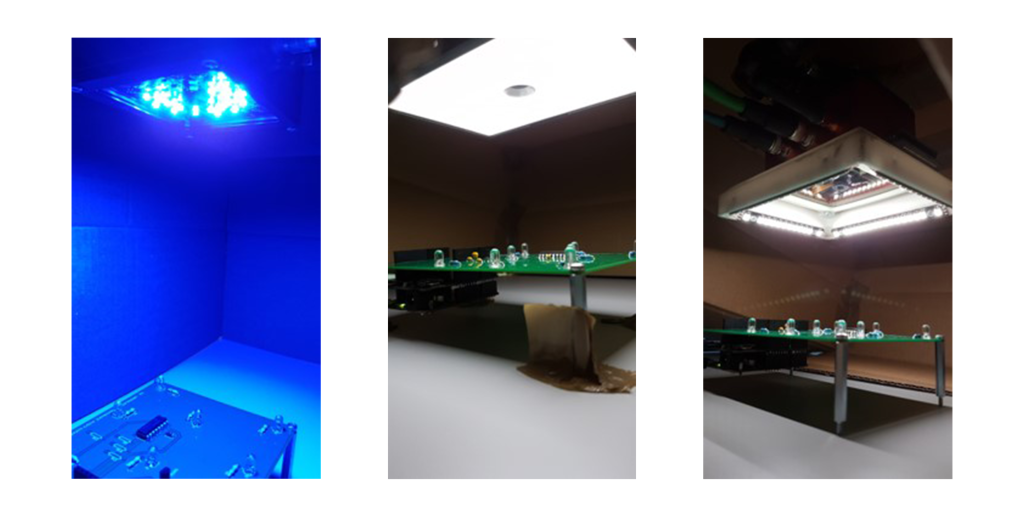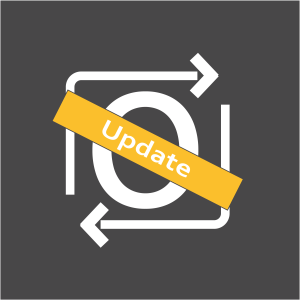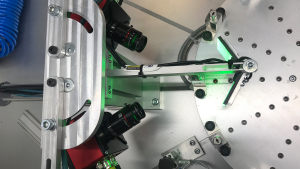Bachelor thesis at evopro
Interview with a product development bachelor student
In the last 5 months, a bachelor thesis was written in the product development department at evopro on the topic “Development of optimization strategies for the evoVIU hardware in the field of optics and lighting”. Here you can read an interview with the bachelor student about his bachelor thesis and his time at evopro.
I: Hi, nice of you to take the time to tell us about your time as an undergraduate student in product development. Perhaps the question at the very beginning: How did it come about that you wrote your bachelor thesis at evopro?
B: I was looking for which companies near where I live offer topics for bachelor theses, and then I came across evopro’s website. I found them very appealing and searched to see if there were any fixed topics for bachelor theses that they offered. There was nothing, so I applied on my own initiative. After some time I was invited for an interview and together with the supervisors we found a topic that fit based on my interests.
I: That means you had quite a high say in the creation of the question?
B: Yes, about 50 percent. Of course, I mentioned what I have already done, what I can do, what I might not like so much. For example, too much software would not have been my cup of tea. I was allowed to have a say in that, but the head of product development specified what was actually done. In the end, though, it was tailor-made for me.
I: What was the topic then?
B: The subject is divided into two parts. On the one hand, it concerns the optical system of the Smart camera evoVIUThe problem here was that when assembling the smart camera, especially when screwing the lens of the smart camera into the module, you don’t know exactly how far it needs to be screwed in and which setting is best for which application. My task now was to figure out which of the existing lenses to screw in how far for which customer specification and how to then achieve the best shooting result. To do this, I made practical measurements, but also looked at the theory. What you measure and the results were then scientifically proven. The second topic was about the evoVIU light modules. There are several in the portfolio and no long-term tests had been carried out so far, like these behave under prolonged load. My task was then to develop a system to measure the light modules, especially the brightness and the stability of the brightness. In the end, I designed a printed circuit board and a circuit to measure and evaluate the brightness. And from these measurement results, I then derived optimization options and proposed solutions. So assuming a module gets very warm, a suitable suggestion would be to use better cooling or different LEDs.

I: Which of the two subject areas appealed to you more, and which perhaps demanded more of you?
B: I spent more time on the optics part. Because the measurement of the lenses and the whole consideration of how the optical system is connected was very time-consuming. The evaluation of the data was also not so easy because they were very small, delicate dimensions. This was difficult and took a lot of time. The part with the light modules went faster and was also more interesting for me because it was more closely linked to my studies. The optics part was very physical and the other more in the direction of mechatronics, because I was able to come up with a measurement setup and create a circuit diagram. Designing a circuit board, assembling it, putting it into operation, taking measurements and also programming an Arduino was more part of my studies.
I: Did you feel that your studies prepared you well for this job? Or did you feel well enough supported during the execution of the work?
B: You could work very independently and I was given a lot of freedom to make decisions, but if I noticed that I needed help, there was someone who could help me immediately. But you could also do a lot yourself. Of course, there was an exchange with the supervisor so that he knew what the status was and whether everything was going in a good direction. And to what extent my studies prepared me for this: It certainly laid the foundations. Especially for the part with the light modules. Understanding the electronics was already important. So that you can get to such a measurement setup faster and understand the circuit. Also, having an understanding of programming was important. But specific tasks, of course, I have not learned, that was now during the work much learning by doing.
I: What is the result of your bachelor thesis?
B: On the lens part, an Excel tool has come out or some kind of selection list so that anyone who isn’t a specialist in lens selection or in the subject of cameras can find the lens that fits. By inputting customer requirement, such as distance or size of field of view, it dynamically provides which of the tested lenses are usable or most ideal. I was able to fix the original problem. I was able to figure out how far to screw in the lens in each case, so now purely by following the instructions, you can assemble the camera pretty well. The goal is for this tool to be used internally so that one can quickly have an overview of which lens is best suited for which specification or determine if the requirement is even feasible with the tested lenses.
The result from the light part is a working measurement setup that can be used to measure the brightness of the light modules. During the measurements, many findings were extracted. For example, the Loxi 3 shows almost no fluctuation in brightness, but the ecL and Loxi 1, for example, show slight fluctuations, which is also noticeable in the image capture. There you can already make statements about how constant the light modules are and you can measure with the measurement setup at which point it is very bright. From this I was able to derive the optimization possibilities.

I: Do you have a general conclusion for us about your time in product development?
B: It was very instructive and you grew in your tasks because a lot of initiative was required. And by already working on a project, you could gain a lot of practical experience and see how it can look later in professional life and how the structure in projects is. It is definitely recommended.
Other contributions:

Release Update V5.4.0
The release update V5.4.0 is here! A major dashboard update, minor bug fixes and the integration of persistent variables are included.

Finally: The new VIU2 PoE camera is here!
The VIU2 PoE camera is here! You can find out why PoE is an important feature in this article.

Finally: The new VIU2 PoE camera is here!
The VIU2 PoE camera is here! You can find out why PoE is an important feature in this article.

Release Update V5.4.0
The release update V5.4.0 is here! A major dashboard update, minor bug fixes and the integration of persistent variables are included.

5 real-life smart city examples
What smart city examples are there? You can find out in this blog article.

Object recognition with Machine Vision
Object detection is an important way for many industries to sort out faulty components.

